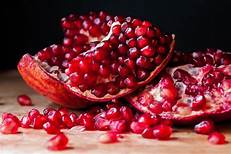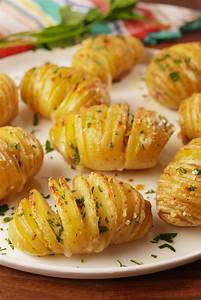Importance of well balance diet
All food contains all of the nutrients we need to be healthy, it is necessary to eat various foods in sufficient amounts. A good diet will include many different foods, and sufficient in quantity and quality to meet an individual’s need for food energy and other micro nutrients.
NUTS AND SEEDS
Typical serving size:
1 oz or 28 gHOW THEY HARM
High in fat and caloriesAllergies
DehydrationWHAT THEY HEAL
Diabetes Heart disease High cholesterol Cancer Low energy Constipation Anemia Weight gain The embryos of various trees, bushes, and other plants, nuts and seeds are packed with all the nutrients needed to grow an entire new plant and have been valued for their nutritional content since prehistoric timesNut- and seed-bearing plants have been cultivated since 10,000 BC
Nuts have been shown to lower cholesterol and help control weight
Eating more nuts is also associated with a lower risk of stroke
Their healthy qualities may be attributed to their fatty acid profile along with their protein, fiber, and magnesium content
Nuts and seeds are one of the best food sources of vitamin E, an important antioxidant that enhances the immune system, protects cell membranes, and helps make red blood cells
Nuts and seeds also contain folate and other minerals such as iron, calcium, selenium, manganese, zinc, and potassium, flavonoids as well as plant sterols
Seeds, such as chia, are also increasingly incorporated in our diets
These tiny seeds have been dubbed a “superfood” that delivers big results
The chia plant is native to Central and South America, but is also grown in Western Australia, now the world’s largest producer of the seeds
Unlike flaxseeds, chia seeds do not need to be ground
Chia seeds are gluten free and a good source of heart- healthy omega-3 fats
Health Benefits
Prevents diabetesNuts and seeds are good for blood sugar
Harvard researchers discovered that women who regularly ate nuts (about a handful five times a week) were 20% less likely to develop type 2 diabetes than those who didn’t eat them as often
Wards off heart disease
Several large studies have found that a regular intake of nuts protects against heart disease
The Nurses’ Health Study found that women who ate more than 5 oz (142 g) of nuts per week had a 35% lower risk of heart attack and death from heart disease compared with those who never ate nuts or ate them less than once a month
Part of the reason may come from the high potassium content, which helps lower blood pressure by balancing sodium levels: A half-cup serving of almonds, peanuts, pine nuts, pistachios, or sunflower seeds provides more than 500 mg of potassium, more than is in a whole banana
Lowers cholesterol
One recent study found that when people with high levels of “bad” LDL cholesterol ate about 1
5 oz (42 g) of sesame seeds a day for 4 weeks as part of an already heart- healthy diet, their LDL levels dropped by almost 10% more than when they followed the same diet without sesame seeds
Not surprisingly, their LDL levels went back up after they stopped eating the sesame seeds
Nuts also contain plant sterols that can lower cholesterol
One study showed that almonds significantly lowered LDL cholesterol in those who already had elevated cholesterol levels, and another study found that a diet that includes unsaturated fats from almonds and walnuts may have 10% more cholesterol-lowering power than a traditional cholesterol-lowering diet
Walnuts are also rich in heart-healthy omega-3 fatty acids; in one study men and women with high cholesterol levels who added walnuts to a healthy Mediterranean diet saw a drop in their LDL cholesterol
May help prevent cancer
Nuts are rich in cancer-fighting antioxidants
A 1-oz (28-g) serving of almonds provides almost 50% of the Recommended Dietary Allowance (RDA) of vitamin E, and a similar serving of hazelnuts provides about 30%
Walnuts in particular are especially rich in ellagic acid, an antioxidant that may inhibit the growth of cancer cells
Brazil nuts are high in selenium, another antioxidant
One-quarter ounce (7 g) provides more than twice the RDA for this mineral
Plant sterols may also contribute to anticancer effects
Boosts energy
Nuts are a “slow-burning” food containing a mix of fat and protein, and thus provide sustained energy
Helps alleviate constipation
Most nuts and seeds are a good source of dietary fiber
A cup of almonds, for example, provides about 15 g
Fights anemia
By weight, both pumpkin and sesame seeds have more iron to combat anemia than liver does
Aids in weight loss
Researchers at Purdue University tested various snack foods, including unsalted peanuts, other nuts, and rice cakes
They found that following a peanut or peanut butter snack, hunger was reduced for 2 ½ hours, while other snacks caused hunger to return within a half hour
Interestingly, the peanut snackers adjusted their calorie intake spontaneously and did not add extra calories to their daily diet
Furthermore, there was a positive change in the fatty-acid profile of the diet reflecting the good-quality fats (monounsaturated) found in the peanuts
Supports a vegetarian diet
Most nuts provide good amounts of protein
With the exception of peanuts, however, they lack lysine, an essential amino acid necessary to make a complete protein
This amino acid can easily be obtained by combining nuts with legumes
NUTS AND SEEDS FACTS
Heating inactivates urushiol, so toasted cashews are safe to eat; the raw nuts, however, should never be eaten
Old School
Nuts are junk foodNew Wisdom
Nuts are excellent sources of protein and other nutrients as long as you keep servings to a handfulHealth Risks
High in fat and caloriesThe bad news is that nuts are high in calories and fat, but the good news is that with the exception of coconuts and palm nuts, their fat is mostly mono- or polyunsaturated
These are considered heart-friendly fats, especially when they replace saturated fats
Still, nuts should be consumed in moderation
Macadamia nuts have more than 1,000 calories per cup; Brazil nuts are a close second
Other nuts and seeds contain about 700 to 850 calories per cup
30% to 50% lower risk of heart disease is associated with eating nuts several times a week
Allergies
Some nuts, especially peanuts (although technically these are not nuts but legumes), provoke allergic reactions in many people
Symptoms range from a tingling sensation in the mouth to hives and, in extreme cases, to anaphylaxis, a life-threatening emergency
But because the different varieties are not closely related, a person who is allergic to walnuts, for example, may be able to eat another type of nut or seed
Dehydration
Chia seeds can absorb a significant amount of liquid—you just don’t want them to do that during digestion
To avoid the problem and actually help maintain hydration, soak chia seeds in water before eating
Allergies
Drop by teaspoonfuls onto waxed paper to harden
Buying Tip
s
Storing Tips
Store nuts and seeds in airtight containers or in sealed plastic bags with the air pressed out in the refrigerator for up to 6 months




